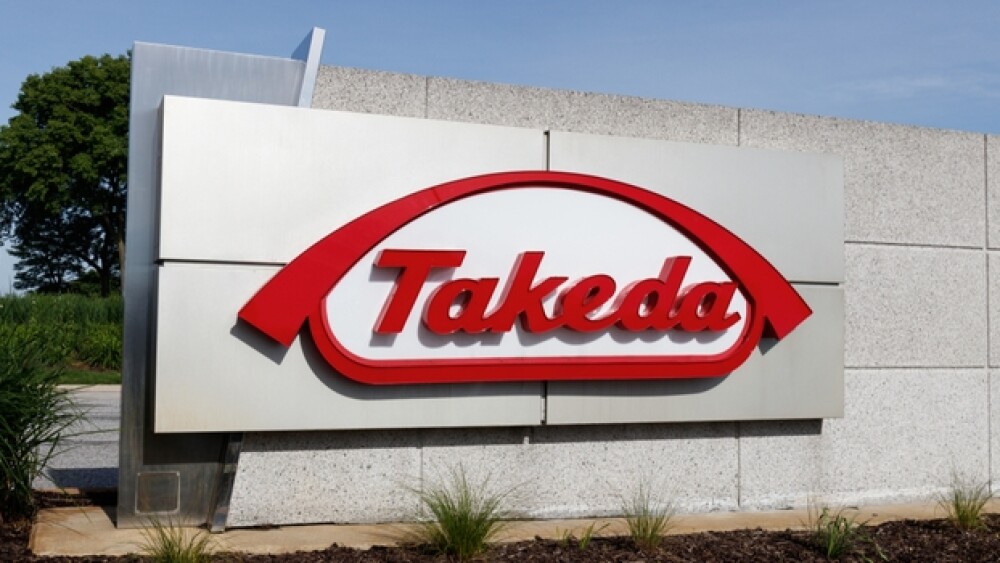Seattle-based Immusoft announced it had inked a research pact and license option deal with Takeda to create, develop, and market cell therapies in rare inherited metabolic diseases with CNS manifestations and complications.
Jonathan Weiss/Shutterstock
Takeda is aggressively partnering with biotech companies this week. Seattle-based Immusoft announced it had inked a research pact and license option deal with Takeda Pharmaceutical Company to create, develop and market cell therapies in rare inherited metabolic diseases with central nervous system (CNS) manifestations and complications. It will leverage Immusoft’s Immune System Programming (ISP) technology platform.
Takeda is paying Immusoft an undisclosed fee upfront and research funding support. Immusoft will be eligible for option fees and milestones of more than $900 million. Takeda picks up options to exclusively license the programs before the clinic. Immusoft will be eligible for tiered royalties on commercial products coming out of the partnership. Takeda will handle continued preclinical and clinical development and commercialization.
“We are excited to enter this collaboration with Takeda, a recognized global leader in rare disease therapies,” stated Sean Ainsworth, Immusoft’s chief executive officer. “This advances our leadership position in B cells as biofactories for therapeutic protein delivery, a novel approach that Immusoft has pioneered. This partnership provides Immusoft with significant resources to further develop our Immune System Programming (ISP) technology platform and therapies in diseases for which patients have limited options.”
Immusoft’s pipeline, primarily in the IND-enabling or discovery phases, has compounds for Hurler syndrome (MPS I and MPS II), ALS, Duchenne muscular dystrophy, Pompe, and Gaucher diseases.
The company’s ISP platform modifies B cells and instructs them to deliver gene-encoded therapies. The partnership will focus on developing therapies that can be delivered across the blood-brain barrier. Immusoft is also working on new approaches to modify cell therapies to be more durable and redosable genetically.
“We continue to build our internal capabilities as well as partner with innovative companies early on in the discovery process to advance our next-generation gene and cell therapy ambitions for rare genetic and hematologic diseases,” said Madhu Natarajan, Takeda Rare Diseases Drug Discovery Unit head. “Working together with Immusoft, we hope to validate their ISP technology for CNS delivery of innovative therapeutics for rare neurometabolic diseases.”
Just yesterday, Takeda signed a research deal with San Diego’s Poseida Therapeutics worth up to $3.6 billion or more. Under the terms of that deal, the companies will collaborate to develop up to six in vivo gene therapy programs using Poseida’s tech platforms, including piggyBac, Cas-CLOVER, and biodegradable nanoparticles. Takeda picked up an option to add two more programs to the deal and fund all collaboration program R&D costs.
Takeda is paying Poseida $45 million upfront and preclinical milestones that could exceed $125 million if all six program milestones are hit. Throughout the partnership, Poseida will also be eligible for future milestones for up to $2.7 billion, which could reach $3.6 billion if all milestones are achieved and the two optional programs.
They will focus on non-viral in vivo gene therapies, including Poseida’s Hemophilia A program.
Natarajan said, “Poseida’s differentiated platform technologies show great promise in developing non-viral in vivo gene therapies using their novel genetic engineering and delivery technologies that complement our existing collaborations. This partnership reinforces Takeda’s commitment to investing in next-generation gene therapy approaches that have the potential to deliver functional cures to patients with rare genetic and hematologic diseases.”
Featured Jobs on BioSpace





